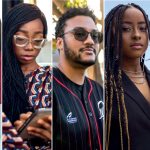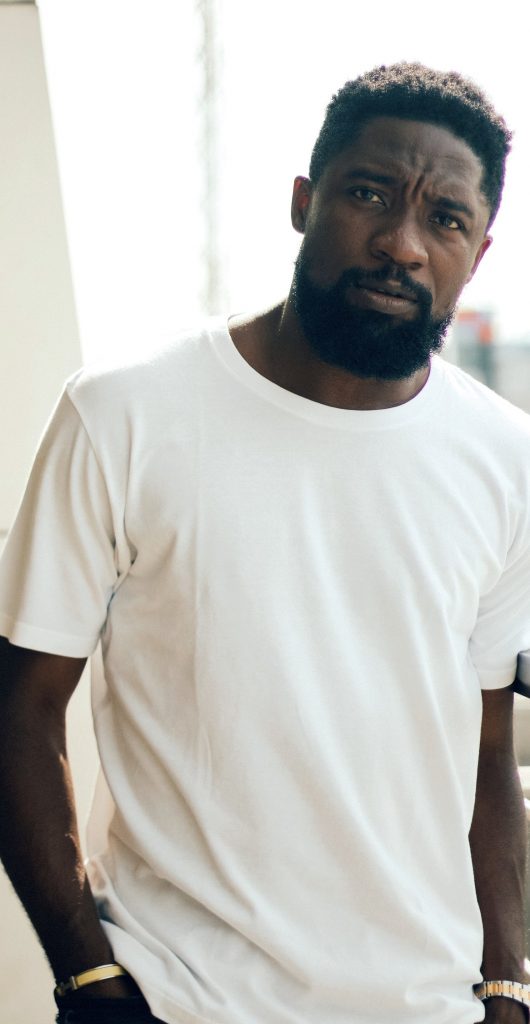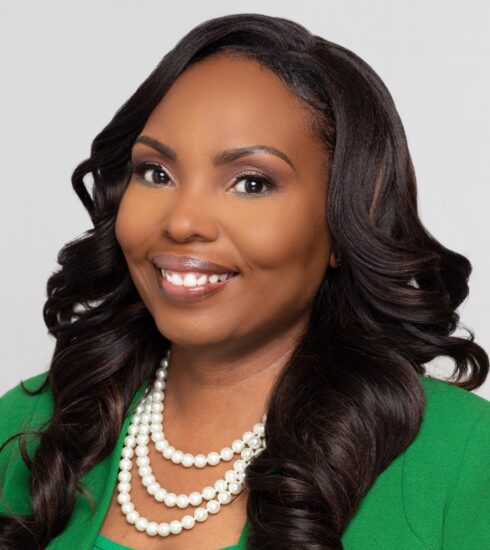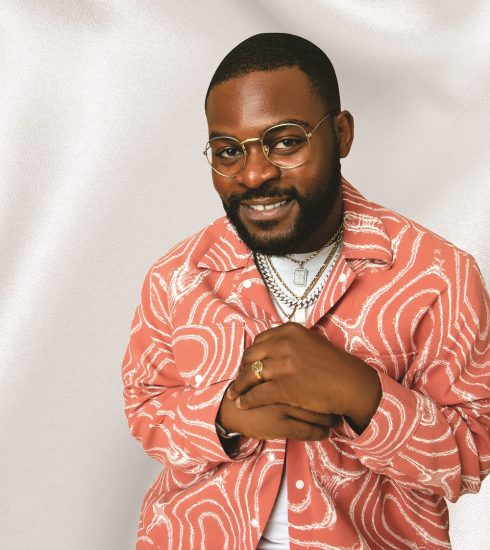Olamide Adedeji: The Show Goes On
Lights. Camera. Action! Show business has always been all about the glitz and glamour with larger-than-life stages, lighting and performances that often leave audiences captivated.
At the heart of these grand productions, there is usually someone pulling the strings and making sure that things run as smoothly as possible.
Olamide Adedeji is the name that should come to mind when you think of such a ‘super producer’. He has been able to spread his influence across the media and entertainment scene in Nigeria. Boasting 15 years experience in show business and a career that cuts across broadcasting, publishing, live performances and media production, he has definitely earned his stripes.
Adedejii speaks with Downtown’s CHISOM NJOKU about his early days in business, his passion for creativity and what it feels like to produce Africa’s biggest television franchise, among other things.
How would you describe Olamide Adedeji to someone who has never heard of him?
First, I’m not the popular music artiste that bears the same name. He is my cousin in the industry (*laughs*). I like my space and I don’t like fame or publicity. Maybe it’s because if I’m in that position, I’ll probably be distracted. So I intentionally avoid it. I’m a very quiet person that enjoys his space and I try as much as possible to make the most out of life by using my God-given talent.
How come you produce great shows and performances that often push people to stardom, yet shy away from publicity?
Some people can’t handle fame and publicity. I think I’m one of such people. I’d rather stay behind the scene and keep on creating stuff. From what I know over the years, I think fame comes with a lot of pressure. As a creative person, you’re already under pressure. You don’t need unnecessary extra pressure.
However, I’m glad that God has used me as a vessel to produce superstars.
What’s your zodiac sign?
I’m an Aries. Although I haven’t really been able to get into it, I find it very fascinating.
What was your childhood like?
I had an interesting childhood. Judging by the kind of upbringing I had, I never thought I would be doing the things I do now for a living. My father was a soldier and that translated to a strict upbringing. I was a very imaginative kid. I recall moments when I felt like creating something. I would sit down and think about all sorts of things.
I was also quite easy-going and rarely got into trouble. I enjoyed going to school, too. I did my primary education at a school called Saint Saviours and eventually studied accounting at the Lagos State University.
How did you start creating?
My dad wanted me to go to business school. I did that, but it was just for a short time, say between six months and one year. While I was there, I got close to one of the lecturers named Olawale Falolu. He noticed me because I was always the first person to enter the lecture room and the last person to leave [that changed eventually]. Before coding became popular I was studying programming languages such as Java, C++, Visual Basic, and the rest.
The lecturer and I became quite close because I didn’t mind running errands for him and being his ‘guy. My closeness to him gave me access to his computers, which weren’t very common in Nigeria at the time (about 20 years ago). I would spend several hours doing programming and running Visual Basic scripts because I just found it fascinating.
He introduced me to design, which I really loved, and started teaching me CorelDraw. This was outside the business and computer programming I signed up for.
I would pick up magazines and redesign them. I would go to business centres and spend a lot of time on computers. It was as if something had fired my curiosity and I wasn’t going to give up too soon. I think that helped me because I would do odd jobs at the cyber cafe and that gave me access to the computers. It also enabled me to learn more.
Then the Internet became popular and I would go to a cyber cafe and pay for 24 hours to sit in front of the computer, visit websites and temporarily get out of my immediate environment. In the process I discovered many colourful websites. I think that kind of set the tone for my romance with entertainment and show business.
How did you get into show business?
My uncle Sola Ojewusi actually introduced me to the industry. One day I was with him and he asked if I could use a computer. I responded affirmatively and he asked me to follow him to work and intern at Ovation Magazine where he worked. I did that for almost a year.
My uncle was the Marketing Manager at Ovation. Then he became the supplementary editor. I really enjoyed the opportunity and we spent a lot of time together.
One day he had a meeting with Ayo Animashaun and I accompanied him [a very important part of my story]. We got to the meeting and afterward, he introduced me to Mr. Animashaun and told him that I was good with computers, in case there was an opportunity for me.
Animashaun invited me to Hip Hop World Magazine, which he ran from his residence at the time. We became best friends for that period. At a point, when I worked late and could not go home, I would sleep on his couch. We had a small team comprising a few young men and women. It was like he was incubating talent for future endeavors. My stint with him lasted between 10 months and a year.
What was your first major project?
One of the biggest projects that sat on my table then was the maiden edition of the Hip Hop World Awards (now known as the Headies), which was the first of its kind at the time. Animashaun insisted that I handle it personally and he was bursting with energy about it [like he still does]. So I started speaking to individuals and teams, assuming the role of a producer and I was young and just trying to figure things out.
After we wrapped up the award event, the reception was amazing and many people thought it was very innovative. But I knew I wanted to switch gear because I had seen what was possible. I’m a very curious person and I’m always searching for the next thing.
After the Headies, what was your next move?
Curiosity led me to take another look at the brand called Soundcity. Although the brand was new to the game at the time, it had great quality. I feel that working with Soundcity was a spiritual thing. This is due to the fact that I got the job after a chance meeting with my boss Tajudeen Adepetu. The first time we met, there was this chemistry between us and the energy was so right.
After I landed the job, thanks to the skills I had acquired over time, I was directed to use my web design experience to clean up the Soundcity website and then use my publishing experience from the Headies to produce a magazine for Soundcity. I felt a bit overwhelmed, but it put me to the test and we were able to deliver two or three months later. The rest, they say, is history.
What are your thoughts on failure?
Failure is not a bad thing. If you don’t fail once, you can’t get it right [that is probably debatable]. But you must learn from the experience and avoid the same mistakes in the future. It’s all part of the process. It’s like learning to ride a bicycle. You fall a couple of times before you get your peddling straight. Falling and bruising your knee is part of the learning process.
How do you decide what project to undertake?
There are things that I’m comfortable with and there are things that I take up as a challenge. If you ask me to produce a concert or festival, that’s second nature to me and because I work with the right team, it’s not difficult for me to pull off.
There are things that I’m curious about, like stage plays, which I had an opportunity to produce for television two years ago. This really helped me to understand first-hand how to put a stage play together. In terms of projects, work has to be done and I don’t shy away from challenges. If the language is right and the stars align, I’ll go for it.
Is there something unbelievable that actually happened to you in the middle of production?
One time my computer crashed just at the beginning of a live show for another television show, actually one or two hours before the televised show. It was really wild and bizarre.
There was another time a show I was producing had a severe and almost accidental technical challenge from a third-party supplier on the show, interrupting our production. The show was easily gunning for the best outdoor concert of the year but the damage was done. We just had to soldier on and learn from it.
Which of the shows you produced was most challenging?
Everything. Every single production is a challenge. There are so many factors; manpower, gear, equipment and location. So many things. A lot of pieces have to come together for the production to be successful. So usually I pray to God to help me handle the aspects of every production that are beyond my control.
You have to always be on your toes, hoping, planning, and praying that everything goes right.
I’ll add that doing events or production in Nigeria is one of the most stressful things because there’s a shortage of almost everything you need to pull it off (power, human resources, equipment).
What inspires you?
A lot of things inspire me, including music and movies. For inspiration, I watch movies from my favourite directors. I like movies like The Godfather. The one I’m obsessed with right now is Tenet.
What’s your dream project?
The legendary project I would always want to be part of is called Global Citizen. That’s a cause I really want to support. Let’s raise funds for millions of people in Africa, have a blast of a festival while doing it and present it in such an entertaining way.
You mentioned before that awards and clout don’t move you. Why is it so?
I surround myself with the right people. I have people around me that are just levelers. I’m surrounded by people who don’t care about anything. My best friend, Ebuka Obi-Uchendu, is one of the biggest television presenters on the continent, but he doesn’t care. He is just focused on doing the work.
How did Bounce Radio come about?
The landscape is changing and there’s a new set of audience, viewers and listeners that consume entertainment through the second screen (mobile phones). These people are growing and they’re redefining the entertainment culture in Nigeria. Some of them are carefree, rebellious, inquisitive, bold and they like to enjoy themselves. Some existing media and entertainment brands are disconnected from these people because they’ve been in the game for a long time and they’re set in their ways. With Bounce, we decided to tap into the market.
The idea was to launch a new media product that would be able to hold a digital audience captive. So we created a hot entertainment platform that will first capture the radio audience just to see how it goes and that’s how we took off.
What’s an average day for you like?
I wake up around 5 am every day, have a cold swim and walk my dog. Then I’m at the office by 8 am and I work till late. I attend a couple of meetings throughout the day and try to go to bed by 10pm or 11pm, try to read in between or catch up on social media and then get some sleep.
The Big Brother Naija project is arguably the biggest in Africa and you’re credited for that. What role do you play and how do you manage such a tasking responsibility?
I believe it takes a village to make things happen. So there’s no one-man credit for Big Brother because it’s such a big franchise.
What I do for the show is produce the live show. It’s the summary of the entire week and it needs to be presented in such an entertaining way and that is what everyone wants to see. There are zero margins for error. It has been so successful because I have a strong support team. The team includes the series producer, who is my very good friend from South Africa; the series director who’s Nigerian, Kayode, who everyone speaks of all the time, and of course, the fantastic presenter, Ebuka.
If you weren’t a super producer, what would you be doing?
I would be an accountant, counting money (laughs).
Have you ever thought of what it would feel like to be a housemate?
I’ve never thought of it because I’ve never seen myself as a celebrity. I’m probably the ‘wrongest’ candidate for the show because I’ll just be in my bed in one corner. I could just decide to be comfy and read a book.
There are things I can’t give up, such as my morning swim, walking my dog, and my morning exercises. Sorry, I can’t give them up for three months.
What are the three things you can’t live without ?
I can’t live without exercising because it helps me stay fit and sharp. Secondly I can’t live without my wife. She is my soul mate and we do everything together. Finally I can’t stop working because it gives me joy and fulfillment. I can definitely live without my cell phone. Yes it’s helpful and functional, but I can do without it.
You described your wife as your soul mate. Give us an insight into the dynamics of your relationship.
We’re very similar. I’m not interested in many things and she’s not, too. I think we hacked it pretty early. Nothing other than the two of us comes first and we work every day to perfect it. We keep figuring it out as we go.
What advice would you give to an aspiring producer?
You need to work hard and smart. You need to read a lot, too. Read whatever you can lay your hands on because no knowledge is lost and you need to expand your mind because what you’re doing requires a lot of imagination and creation.
What’s the major misconception about you?
People assume I’m wicked or high-handed, but I’m really just particular. I hold certain standards with the kind of things I do and I don’t want to compromise it for anything. I’m a long-term kind of person and if you build something with a solid structure or foundation, the long-term gain will be much better than the short-term gain.








Timi
5 years agoThis was so helpful and inspiring. Thank you Uncle Lams. I will love to read more, as a guideline. I have always wondered why you don’t want to be Celebrated, now I understand 😂. Watch out the space for the Next Big Producer – Oyintoke Timilehin